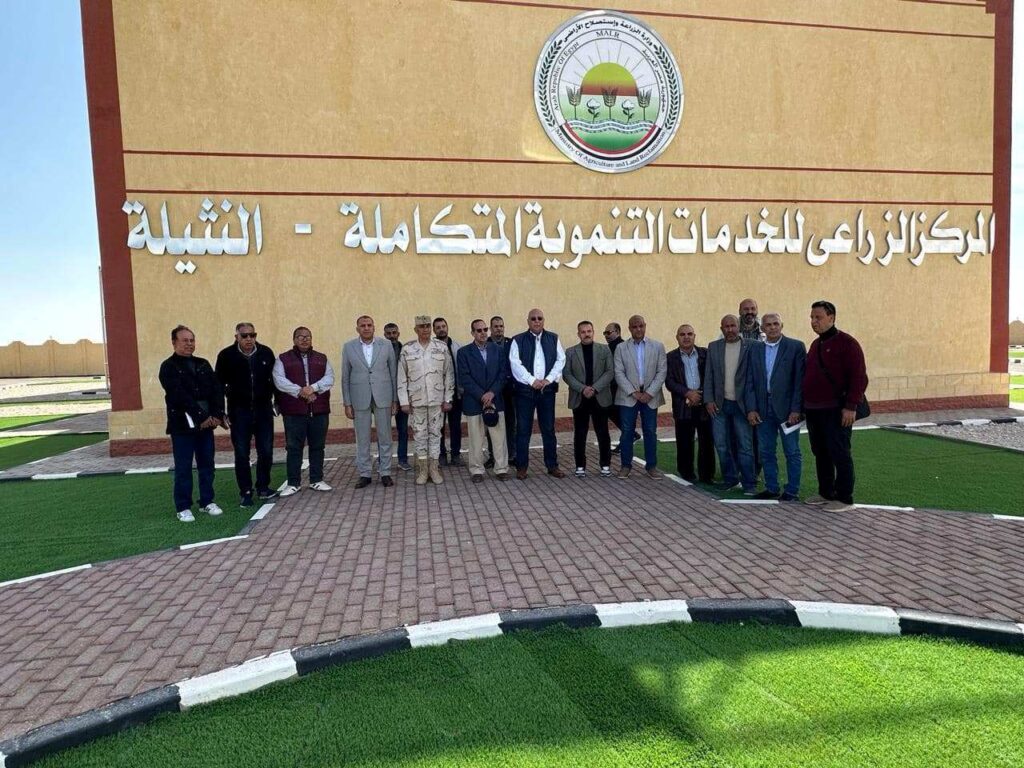Within the framework of the periodic follow-up of agricultural projects that the state is implementing (within the Integrated Development Plan in Sinai), President of Desert Research Center and Governor of North Sinai made an inspection tour of the Agriculture Cluster Development Project in Sinai, which is considered one of the most important national projects to which all the governorate’s agencies are devoted.
It is worth noting that the Agriculture Cluster Development Project aims to allocate 5 agricultural acres (ready for cultivation) and a dwelling with an area of 200 M2 for each family. The state bears 70% of the total cost, and the citizen bears the rest of the value, paying it in instalments. Thus, the project gives the farmer the opportunity to cultivate and produce and achieve a return that enables him to pay. There are in each cluster: a school, a mosque, sports-ground, studios and shops, and in each cluster, there are water wells, water storage tanks, electricity control rooms and various service areas.
The development clusters are a true example of sustainable development on the land of Sinai, helping to empower farmers owning land and a house at reduced prices, in addition that providing job opportunities, it also helped in the process of reconstructing desert areas and reclaiming them for agriculture.
According to President of Desert Research Center, Dr. Hosam Shawky, that DRC is responsible for supervising this project, through its research stations, as DRC owns 5 research stations in North, Central and South Sinai, in addition to three Centers for agricultural development services, all of which work to serve the project.
During the visit, Dr. Shawky and Major General Shousha, Governor of North Sinai, met some of the farmers benefiting from the project, and listened to the most important problems and challenges facing them and promised to solve it as soon as possible. At the end of the visit, 20,000 olive seedlings were distributed to farmers as support provided by the state.


